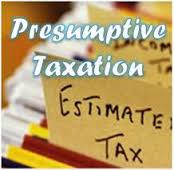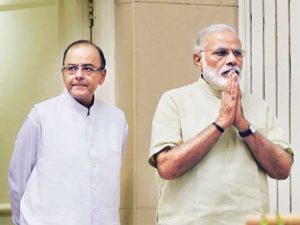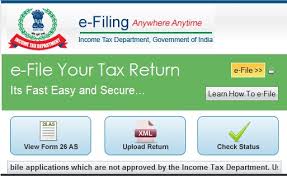 Income Tax Department has asked its officers to make “all out efforts” to attract potential declarants under the domestic black money window by assuring them of confidential and hassle-free disclosures.
Income Tax Department has asked its officers to make “all out efforts” to attract potential declarants under the domestic black money window by assuring them of confidential and hassle-free disclosures.
In order to give wide publicity, the CBDT has also suggested putting up posters about the Income Declaration Scheme-2016, at places frequented by potential declarants, like club houses, posh markets, showrooms of high end products.
The four-pronged strategy prepared by the CBDT for the success of the scheme, includes single point contact to ensure confidentiality, setting up of facilitation centres across the country, giving wide publicity and monitoring at the highest level.
Finance Minister Arun Jaitley in Budget had announced a four-month window under the Income Declaration Scheme 2016. The scheme, which opened on June 1, allows domestic black money holders to declare ill-gotten wealth and come clean by paying a tax and penalty totalling 45 per cent.
“All out efforts are to be made to ensure the targeted taxpayers are well informed about the scheme and are adequately guided and facilitated for filing declarations so that they can avail maximum benefits under the scheme, which is under highest consideration of the government during the coming months,” the CBDT said in an office memorandum.
In order to ensure confidentiality of the declarants, the Central Board of Direct Taxes (CBDT) has said only Principal Commissioner or Commissioner Income Tax should act as a “single point of contact” for interacting with the declarants.
“Such Pr CIIT/CIT should be the one and only point of contact with the respective declarant. The idea is to ensure the declarant is not exposed to multiple persons in the office so that his confidentiality is not compromised and he is able to file the declaration in a hassle free manner,” it added.
The detailed action plan for the success of black money disclosure scheme was discussed at the annual conference of tax administrators last week.
In its strategy, CBDT has asked Principal Commissioners and Commissioners to provide all “procedural facilities” at the time of disclosure so as to avoid additional interaction with anyone else in the office.
“All records related to IDS-2016 must be kept in the personal custody of the respective Principal CIT /CIT officer in a safe and secure manner,” it said, adding officer with “good inter-personal skills” be deputed as ‘Facilitation Officer’ to answer queries related to the scheme.
In every city where Principal Commissioner is stationed, a “facilitation centre” in the nature of help desk may be opened for disseminating information about the scheme.
The CBDT has also asked its senior officers to hold “frequent meetings” with trade and industry bodies and professional associations, besides organising town halls and seminars.
In order to step up publicity for the scheme at local level, tax officers should disseminate information through posters in regional languages, stalls at local fairs.
In order to ensure monitoring at the highest level, CBDT said ‘IDS Banner’ will become functional next week on its website where the officers would upload their meeting details.
This will help compare the progress made in organising the campaign.
Last year the government came up with a similar scheme for persons having unaccounted black money abroad. Disclosures during that window were charged with a total tax and penalty of 60 per cent.
A total of Rs 4,147 crore of undisclosed wealth was declared during the 90-day foreign black money compliance window that ended September 30. At 60 per cent (30 per cent tax and 30 per cent penalty), the government got a net tax of Rs 2,500 crore from the declarations.





